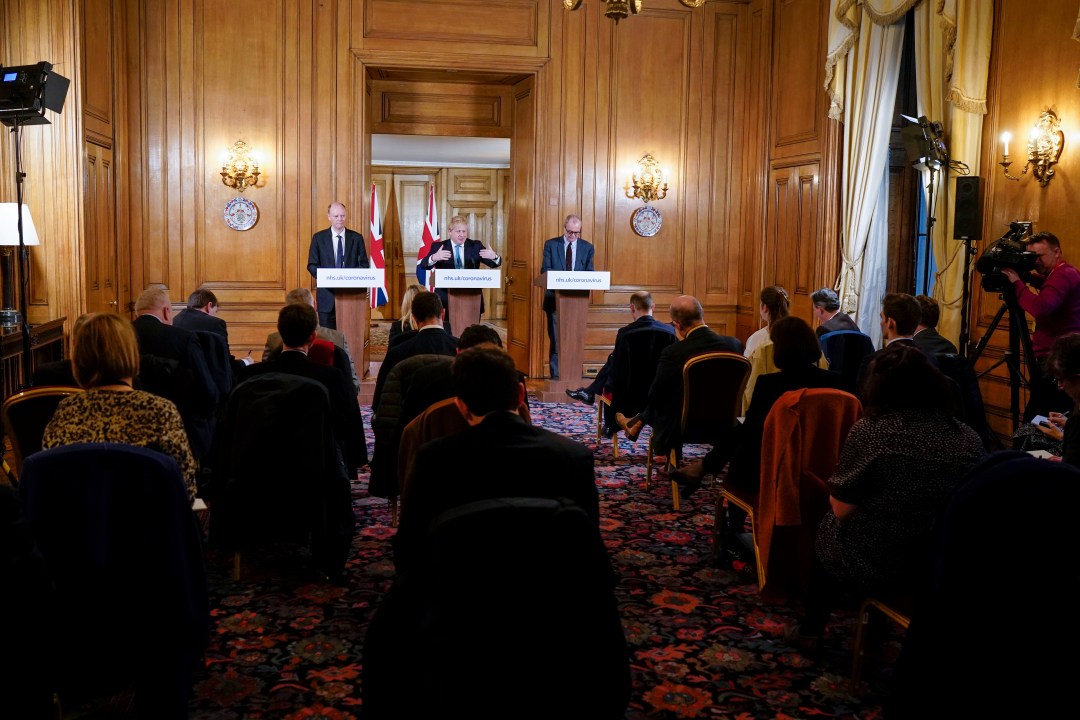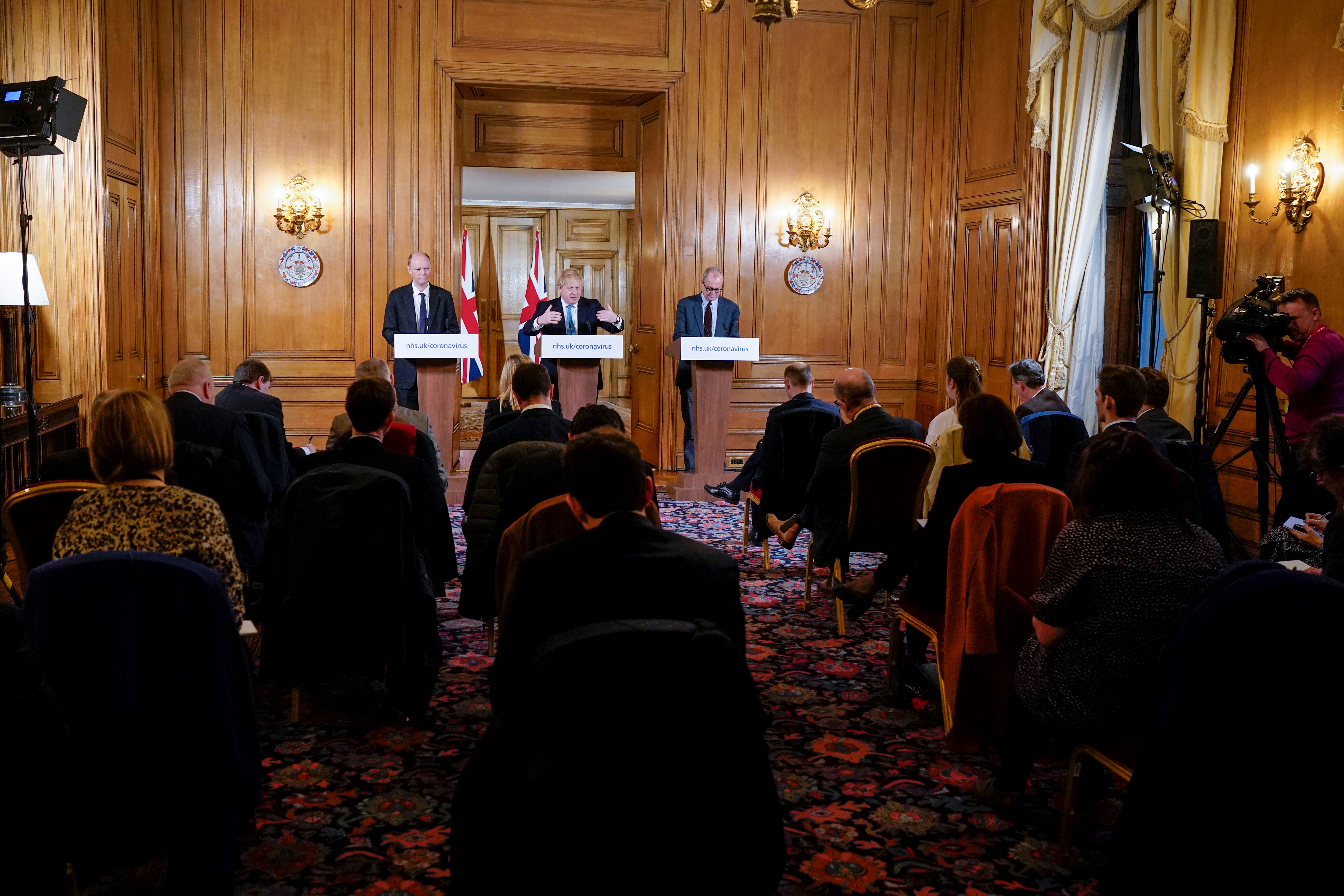It is open season on the Lobby. Social media is full of condemnation for political correspondents over the questions they ask at the daily coronavirus briefing. Polling, private and public, shows that UK trust in media reporting has suffered badly in this crisis. Ministers and officials privately rage about the quality of reporting on much of the coronavirus story.
Downing Street has decided to surf that wave of irritation by asking members of the public to submit questions too. That’s a smart move, but one that will come at further cost to the standing of the Lobby in particular.
I held a Lobby pass between 2001 and 2017, though I stopped being a regular reporter based in the Palace of Westminster in 2014. The Lobby drove me mad, possibly, for a few months, literally. Throughout those years I was painfully conscious of the flaws and limitations of the journalism the Lobby system produces, all of which are now on vivid display to the public.
But the point of this piece is not to add to the criticism of my former colleagues and current friends in the Lobby. It is to defend them and to distinguish between them and the systems and structures within which they work.
These are the stories that sell papers, books and get viewers and clicks
Many people, quite reasonably, annoyed with political journalists who seem to think they understand science better than the scientists, and with political journalists who seem to think getting ministers to use certain words (‘sorry’) or to talk about resignation, fault and blame is the primary aim of journalism right now.
And watching those daily pressers from my desk at home, I have shared that irritation, even though I doubt I’d have done any better if I’d still been in the job. (I do know one thing: my questions would have been longer. If you think you’re annoyed by reporters droning into the mic, you should have seen me in my endless, rambling prime.)
Because a lot of the flaws of the Lobby come down to structure and institutional design.
If you haven’t been inside a newspaper or big broadcaster, you might not understand the role that political correspondents play. They are very often Everything Correspondents, the people who get called on to cover every aspect of government policy, public services, politics, public opinion, diplomacy, the constitution… everything.
And there aren’t very many of them either. In a ‘normal’ week, many newspaper lobby reporters produce anywhere between 10 and 30 stories, often on the full range of topics I’ve listed above, and more besides. This is one of the things that makes the job tough but fascinating. But it doesn’t produce expertise. Isaiah Berlin said there are foxes (who know many things) and hedgehogs, who know only one. To survive as a Lobby correspondent you must be a fox not a hedgehog.
This is accepted as a fact of life in the Lobby, but not always happily. I don’t know a single Lobby journalist who would not like more time to research and think, more time to go into greater depth with their work. But the clock is ticking and copy must be filed. The beast must always be fed. The internet means it must be fed more often, and by fewer people. Chucking a story to the Lobby is an easy way to get quick ‘content’ rather than calling in a specialist whose expertise takes time and expense to develop.
And so when a single story of terrifying technical complexity comes along, the Lobby tradition can leave members exposed. The smart reporters go back to the basics of reporting, just asking questions without pretending to know the answers themselves: knowing what you don’t know is often one of the most useful skills a journalist can develop. The others, well, you know who they are. It’s easy to condemn reporters who think that a few hours of googling and maybe speed-reading the abstracts of medical journal papers makes them experts on a par with actual scientists but remember: this sort of instant-expertise is cheap for media companies, who have rewarded its practitioners with every form of employment, promotion and acclaim in the past. Why stop now?
Incentives matter to everyone, not least journalists. Think about the stories that have got the most attention in the last few years, the splashes that make reporters’ names and win awards. By and large, the Lobby exists to write about politicians, their machinations, their successes and their failures. When I joined the Lobby, the story was all about Tony Blair and Gordon Brown: did they hate each other, were their allies slagging each other off in spectacular ways? Those were the stories that made front pages; any Lobby reporter trying to argue that the success of Sure Start schemes or some other wrinkle of domestic policy might matter more to voters was failing to understand the purpose of political journalism.
That structural incentive to prioritise personality and politics over policy is not created by the Lobby and certainly not by the people who work there: even the mightiest members of the tribe don’t get to decide what leads the paper or the bulletins. Those decisions are taken elsewhere and not just by editors but ultimately readers and viewers.
Why, for years, did media outlets report politics as a soap opera, refracting big questions of policy and law through the cracked prism of politicians’ personalities and careers? Because that’s what sold. The downfall of Tony Blair was more interesting than the percentage of GDP spent on healthcare. Gordon Brown’s character flaws were better copy than productivity numbers. Relations between David Cameron and Nick Clegg were a better story than in-work poverty. Theresa May’s agony was more compelling than what was actually in her Withdrawal Agreement. These are the stories that sell papers, books and get viewers and clicks.
You might hate the personal ‘gotcha’ of ‘will you apologise?’ and ‘will you resign?’ – I do too, and I did my fair share of it – but you should remember that for a long time, that’s what at least some of the public wanted from political journalism. Yes, the story has changed, and so journalism should change too. But when it comes to blaming the Lobby over coronavirus coverage, hate the game, not the players.








Comments